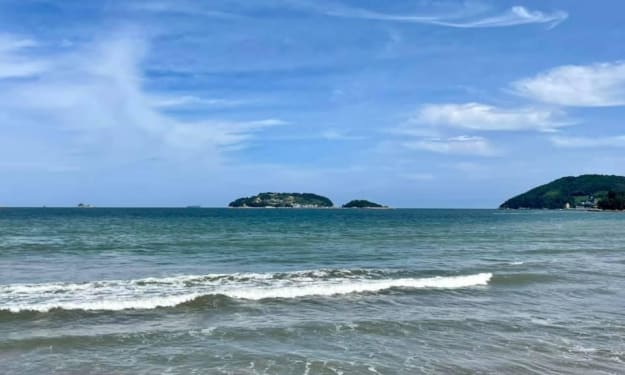Using Political Platforms to Increase Global Advocacy in the Energy Transition
Energy transition solutions

Using Political Platforms to Increase Global Advocacy in the Energy Transition
The world is at a critical juncture in solving climate change concerns and transitioning to a sustainable energy future. As the implications of global warming become more obvious, governments must increase their efforts and commitments to the energy transition.
The Importance of the Energy Transition
The energy transition is the progressive transition away from fossil fuels and towards renewable and sustainable energy sources. This shift is critical for mitigating the negative effects of climate change, reducing greenhouse gas emissions, and ensuring a cleaner, more sustainable world for future generations. Global cooperation and dedication are required to speed the transition and accomplish the lofty goals outlined in international treaties such as the Paris Agreement.
The Role of Political Platforms
Political platforms offer leaders a unique opportunity to advocate for and influence the global energy transition. Heads of state, administrations, and politicians should use their platforms to emphasise the importance of climate action, promote renewable energy technologies, and lobby for progressive policies that encourage sustainable behaviour. Their ability to engage foreign partners and create cooperation is critical to gaining support for the energy transition.
International Cooperation and Alliances
International cooperation is critical in the energy transition. Politicians can use their diplomatic platforms to organise alliances and collaborations that encourage sustainable energy investments, technological transfers, and capacity building in poor nations. Bilateral and international agreements can help to facilitate the sharing of best practises and the adoption of renewable energy solutions, especially in areas where the transition may be difficult.

Advocacy through International Organisations
Global institutions such as the United Nations, the World Bank, and the International Renewable Energy Agency (IRENA) are critical advocates for the energy transition. These forums can be used by political leaders to support projects that promote renewable energy research, development, and implementation. These organisations can assist countries in improving their renewable energy infrastructure and meeting their climate commitments by giving financial assistance and technical knowledge.
Engaging Civil Society and the Private Sector
Political platforms include civil society and the commercial sector in addition to government agencies. Engaging stakeholders such as environmental non-governmental organisations (NGOs), corporations, and academia can help to increase advocacy for the energy transition. Political leaders can form alliances with these organisations, leveraging their knowledge and resources to stimulate innovation, raise public awareness, and establish sustainable practises across several industries.
Overcoming obstacles and resistance throughout the energy transition is critical for accelerating progress towards a more sustainable future. Political leaders, in partnership with other stakeholders, can adopt many techniques to effectively handle these challenges:
1. Transparent Communication:
Political leaders must communicate openly about the importance and benefits of the energy transition. They should emphasise the potential economic benefits, employment development, and environmental benefits of renewable energy adoption. Leaders can gain public support and counter misinformation spread by special interests by presenting a clear and appealing story.
2. Inclusive Policy Formulation:
Policymakers should guarantee that different stakeholders, including as representatives from the fossil fuel business, environmental organisations, and communities affected by the transition, are included in policy creation. Inclusivity provides a sense of belonging and allows for a balanced approach that resolves issues while also promoting a just transition for all.
3. Just Transition Mechanisms:
Recognising the potential for disruption in specific industries and localities, political leaders should put in place just transition procedures. These measures provide assistance and resources to affected people as they transition into new sectors, as well as social safety nets and investments in retraining and reskilling programmes to ensure a smooth transition away from fossil fuels.
4. Economic Incentives:
Governments can utilise economic incentives to encourage the use of renewable energy while discouraging the use of fossil fuels. Tax incentives, subsidies, and grants for renewable energy projects are examples of this, as are carbon pricing methods that internalise the external costs of carbon emissions.
5. Public-Private Partnerships:
Collaboration between the public and business sectors can hasten the energy transition by combining their respective skills and resources. Governments can provide encouraging regulations and financial support, while corporations can bring creativity and technology developments to help scale up renewable energy solutions.

6. International Cooperation:
Global problems necessitate global solutions. Political leaders should work with counterparts from other countries to share best practises, technologies, and resources. Joint projects like the International Solar Alliance can boost cooperation and help developing countries shift to renewable energy sources.
7. Long-Term Planning:
Political leaders must take a long-term approach to energy planning and policy formulation. Governments give investors and businesses with confidence to invest in sustainable projects and infrastructure by establishing clear and ambitious renewable energy targets.
8. Resilience and Adaptation:
Climate change is already influencing many locations, and some consequences may be unavoidable. Political leaders must incorporate climate resilience and adaptation strategies into their policies to protect vulnerable communities and infrastructure from the effects of climate change.
9. Public Awareness and Education:
Leaders should prioritise public awareness campaigns and educational programmes to educate residents on the importance of climate change and the benefits of energy transition. Citizens who are educated and informed are more inclined to support and demand sustainable policies from their leaders.
10. Lead by Example:
By implementing sustainable practises in their own operations and activities, political leaders can set a significant example. This includes instituting green policies across government agencies, utilising renewable energy, and prioritising energy-efficient infrastructure.
Conclusion:
To overcome problems and resistance in the energy transition, political leaders, civic society, and the commercial sector must work together in a deliberate and collaborative manner. Leaders may create a favourable atmosphere for renewable energy adoption through implementing transparent communication, inclusive policymaking, economic incentives, and international cooperation. In doing so, they can pave the road for a low-carbon, sustainable future that benefits both current and future generations.
About ER-Marine
ER-MARINE, we offer comprehensive solutions and services for the development of floating offshore wind projects in South Korea. We have extensive local knowledge of the Korean market and can help you identify and mitigate potential risks before they become huge and costly problems. At ER-Marine we work together with all stakeholders in Korea; through local and international collaboration we help establishing the energy transition towards a sustainable future.
About the Creator
Erik Roelans
I am founder and CEO of ER-MARINE and write about the green energy transition, renewable energy challenges, climate change, offshore wind permitting, policy dialogue, marine biodiversity, renewables and floating offshore wind development.






Comments
There are no comments for this story
Be the first to respond and start the conversation.